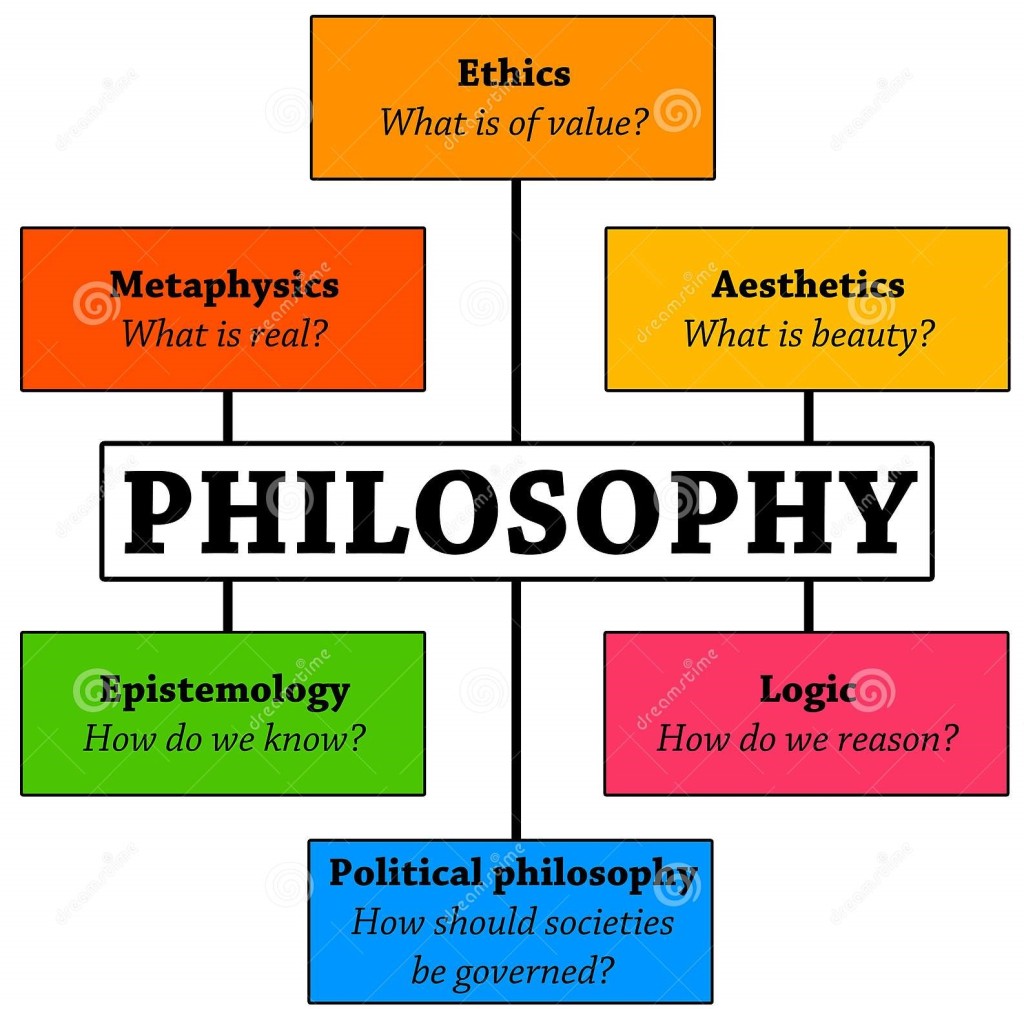[I.]: Philosophy is a field of study or academic discipline that “seeks to uncover the nature, root, and meaning of life, being, reality (metaphysics), ethics, and knowledge (epistemology).” Given that definition, philosophy has a broad purview that often overlaps and interacts with many others (psychology, economics, biology, physics, etc.).
[II.]: The (6) main branches of Philosophy are:
Metaphysics/Ontology: Study of the fundamental nature of reality
Epistemology: Study of the origin, function, and limits of human knowledge
Ethics: Study of what is right and wrong in human behavior
Aesthetics: Study of beauty and taste
Logic: Study of the function of reasoning and the various types of logic
Political Philosophy: Study of government, addressing questions about the nature, scope, and legitimacy of public agents and institutions
Metaphysics is mainly concerned with explaining the nature of being (existence) and the world. Traditionally, it has two different study areas, including Cosmology and Ontology. Cosmology is focused on understanding the origin, evolution, and the eventual fate of the universe, which include laws that keep it in functioning order. On the other hand, Ontology investigates various types of things that exist and their relationship with each other. Long before the discovery of modern science, all the science-related questions were asked as a part of Metaphysics.
Epistemology is about the study of knowledge. What can we know? How can we know something (or someone)? Epistemology also asks questions such as, can knowledge ever be absolute, or is it only ever relative to a particular situation/event/person/fact? Is there a limit for humans to know certain things? What justifies truth claims? These are some of the essential questions Epistemology seeks answers for.
Ethics, also known as moral philosophy, is often referred to as the study of morality. It seeks to address questions about how we should live our lives, how we define proper conduct, and what we mean by the good life. It’s a study that teaches us what the virtuous life is like and how we can put these virtues into practice. Ethics concerns itself with questions like, what is the good life? How should we act? What do we mean by virtue? What does “right” even mean?
Aesthetics as a philosophical subject is wholly devoted to defining the different aspects of beauty and art. How do we find something beautiful? Is beauty always subjective or can it be objective too? Can everyone find a thing/process/event/person beautiful? Aesthetics also examines individual tastes and attempts to provide answers about these things in a scientific manner.
Logic is the branch of philosophy that studies reasoning. It teaches us how to differentiate between good and bad reasoning and how to construct valid arguments. It seeks answers to questions like, what is valid reasoning? How can you distinguish between a good argument and a bad argument? How can you spot fallacies or errors in an argument?
Political Philosophy studies political government, laws, liberty, justice, rights, authority, political states and systems, ethics, and more related concepts under a variety of analytic lenses. Political philosophy helps us to understand why we need governments, the role played by governments, and what are its constituents, amongst other things. It can also help guide public policy formation through the use of informative and creative thought experiments (e.g. Rawls’s Reflective Equilibrium).
Tagged: Domain, General Philosophy, Metaphilosophy, Philosophy, Realm, Taxonomy


Leave a comment